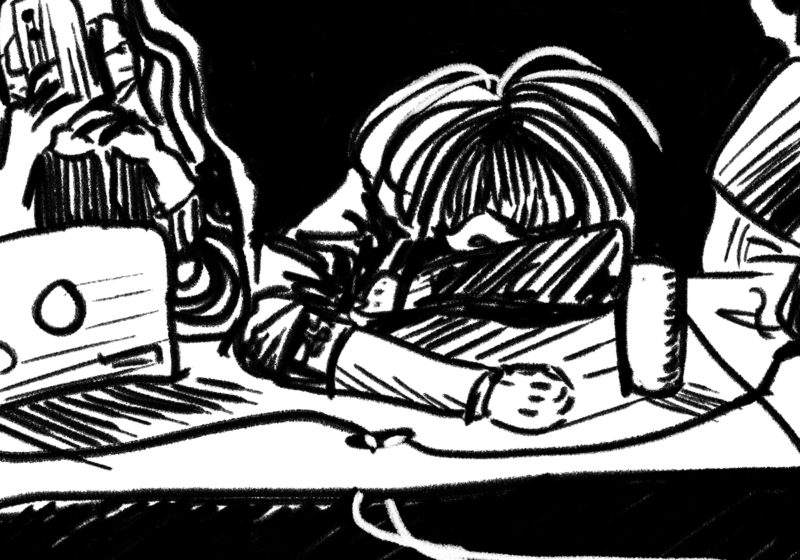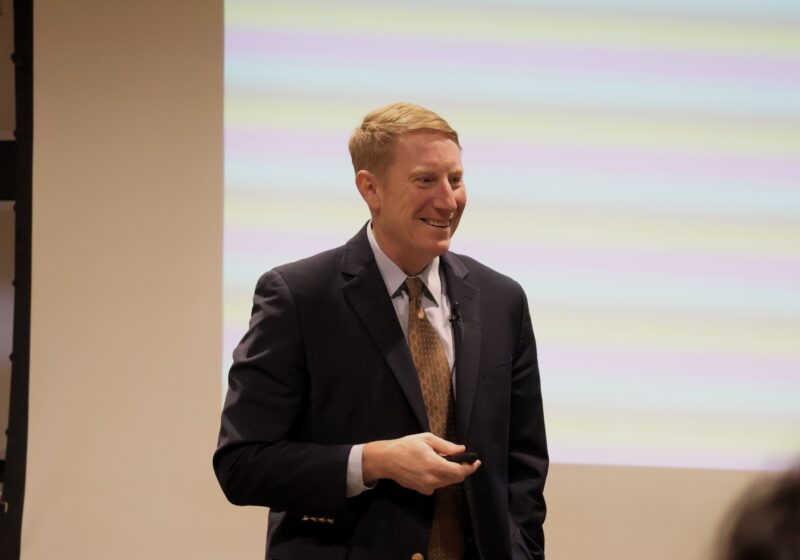“Don’t settle for a dead-end 9-5 desk job! It’ll suck away your joy! And your soul! You’re giving up on your dreams and giving in to the system! Did you know that sitting down literally kills you? Pursue your passion no matter what! Take your five-stringed semi-broken acoustic guitar with vague yet very angry political statements sharpied on it and hitch-hike your way across the country, busking on street corners for a living while sleeping in a tent every night with your girlfriend who does stick-n-poke tattoos on her own leg!!”
We’ve all heard it before: That dreams go to die in a cubicle. That the 9-5 is the epitome of capitalist monotony. That if you succumb to this standard of work, you are setting yourself up for a dull and unfulfilling 40-50 years, and then you retire and wonder where your precious youth went — and then, you die.
To some extent, this sentiment is an accurate one. Many people choose the safe job or reliable major because they think it’ll pay better than another riskier career track, even if their heart lies with the latter. And there’s absolutely nothing wrong with this at all — that decision is obviously up to the individual. However, I don’t believe that this phenomenon and its relationship to creativity is as black and white as many artists (and almost everyone else, for that matter) make it out to be. A widely accepted notion among creatives is that the acceptance of a conventional desk job means that you’re sacrificing your dreams and artistic spirit, or at the very least settling for a duller life. Ironically, though, this is actually one of the least creative beliefs that one could hold.
Such a sentiment assumes that “true” creativity can only be fully pursued and fostered in certain environments and circumstances. For people who see themselves as imaginative and open-minded, this is a pretty narrow way of thinking. Self-expression can reveal itself in nearly any form, and a line of work certainly doesn’t define one’s capacity or opportunities for such expression — it just matters how imaginative you are within your circumstances. Besides, restriction and boredom can often be creativity’s best friend. Being forced to create within a specific framework can generate ideas that wouldn’t have otherwise arisen without such a restriction. Think of the concept of being given a singular sentence and then needing to write an entire story around that sentence. Or painting a picture using an unusual medium. Or editing a video with found footage. Or composing a song around a predetermined chord progression. An occupation is just another framework that can be exploited for creation.
But let’s say that your job is so stiflingly routine, that your room for self-expression is extremely limited. Maybe your job is undeniably bland, or the financial realities of the world and a lack of privilege don’t exactly allow you to go off the grid and build a log cabin. That still doesn’t mean your creativity has to die. While professional careers obviously take up a large amount of one’s time — especially in the unfortunate cases of those who are forced to work an ungodly number of hours just to scrape by — they still don’t define who an individual truly is. Just because your professional career isn’t creative doesn’t mean you can’t be. It also doesn’t mean that you’re “giving up” on a dream in any way. It just means that you are taking the necessary steps to support yourself within the harsh realities of our economy.
And besides, jobs are hardly ever meant to be a lifelong commitment. Just because you might have to take a boring or uninspiring position at a certain point in your life out of necessity doesn’t mean that it’ll define the rest of your professional career, much less your identity. There is always room to grow, and there are always different seasons of life that call for different occupations.
But even if you never get that dream job — even if you never move to France and paint pictures of baguettes that sell for millions to snooty businessmen at art shows — your life isn’t necessarily going to waste in a cubicle! There are still plenty of opportunities outside of professionalism that allow for self-expression and fulfillment, and the sentiment that this isn’t the case assumes that one’s life and identity is found solely in their career, which simply isn’t true.
So, whether you’re busking on street corners or pushing papers around, never let your occupation — your means to survive — define how you express yourself.



